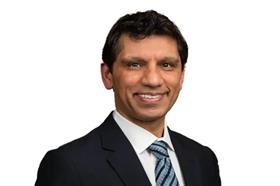FIFA, world football’s governing body, has once again been brought into the spotlight following legal submissions regarding the 2034 World Cup in Saudi Arabia. The complaint follows earlier submissions in May 2024 which concluded that FIFA must be prepared to deny Saudi Arabia the right to host the 2034 men’s World Cup if the kingdom fails to comply with human rights obligations. Failure to do so would breach FIFA’s own rules, the complaint argues.


The May 2024 report appears to have fallen on deaf ears. FIFA’s ethical complaints process will now be tested by how it handles a May 2025 complaint that alleges breaches by FIFA’s executive. The complaint identifies five key reasons why awarding the World Cup to Saudi Arabia has placed FIFA in breach of its own ethical provisions. These relate to:
i) freedom of expression and association;
ii) arbitrary arrests, mistreatment and the death penalty;
iii) judicial independence;
iv) migrants’ rights; and
v) women’s rights.
The grievance is in addition to a recent complaint to the International Labour Organization over alleged migrant worker abuse in the kingdom ahead of the World Cup. FIFA’s governance as a whole has also been called into question by a joint statement from, among others, NGOs, academics, writers, whistleblowers and football supporters’ groups.
Not only does the complaint about the 2034 World Cup hosts shine a light on rule-of-law and human rights issues in Saudi Arabia, but it also presents an opportunity to scrutinise how FIFA handles ethical complaints. FIFA is not unique in this regard. The International Olympic Committee has faced similar criticism over its alleged failure to follow its own ethical complaints procedures, such as its response to sexual assault allegations by Chinese tennis player Peng Shuai, as well as its decision to award the Winter Olympics to Beijing in 2022 while ongoing mass repression and international crimes were taking place against the Uyghurs.
Adherence to rule-of-law principles is critical for organisations such as FIFA, especially as its governing documents make access to Swiss courts – where FIFA is located – incredibly difficult. FIFA has appealed decisions made by the Court of Arbitration for Sport in Lausanne to the Swiss Supreme Court. In rare instances, FIFA can be taken to the Swiss Supreme Court.
Article 3 of the FIFA General Statute provides that ‘FIFA is committed to respecting all internationally recognised human rights’. Article 8 states that all bodies and officials must observe the statutes, regulations, decisions and Code of Ethics of FIFA in their activities. Article 14 mandates that member associations prevent and fight against any kind of discrimination, promote the development of women’s football and the full participation of women at all levels, and comply fully with all other duties arising from these statutes and other regulations. However, to determine whether FIFA’s system lives up to these lofty promises, one must consider how a complaint can be made, how it will be considered and by whom.
A system that respects the rule of law must uphold three values:
i) independence,
ii) impartiality, and
iii) integrity.
In ethics complaints, these principles must apply to both the initial decision and any appeal. The process should also provide all parties with the opportunity to present evidence and ensure an effective remedy for the alleged complaint.
For FIFA’s ethics to be compatible with the rule of law, the systems – including composition, appointment, functions, and procedures of the ethics committee – should be in keeping with international standards.
In relation to the appointment of members, personnel are proposed by FIFA’s council to be elected by the congress. Although they cannot be members of any other FIFA body, they are not prevented from having a ‘material business relationship with FIFA, a confederation or a member association’. This is worrying from a rule-of-law perspective insofar as it may affect the independence of the committee and how it holds members to account.
The ethics committee is said to be ‘composed in such a way that the members, together, have the knowledge, abilities and specialist experience that is necessary for the due completion of their tasks. The chairpersons and deputy chairpersons of the judicial bodies shall be qualified to practise law’ (paragraph 3). The chairperson and deputy chairperson of the ethics committee and the appeal committee ‘shall fulfil the independence criteria as defined in the FIFA governance regulations and must pass an eligibility check carried out by the review committee’ (paragraph 4). These provisions are pleasing from a rule-of-law standpoint; nonetheless, FIFA should be encouraged to adopt an independent appointment process for the appointment of its ethics committees.
The committee’s function is to ‘investigate and judge the conduct of persons’ who were bound by the code of ethics. The code has many obligations, including:
- respecting FIFA’s regulatory framework;
- behaving with integrity;
- refraining from improper conduct;
- not to breach fiduciary duty when acting in a way that is detrimental to the interests of FIFA;
- persons shall not discriminate in any way;
- not to make public statements towards FIFA or its personnel;
- not to be offensive; and
- not to be abusive.
In theory, the provisions of the code prevent a range of unethical practices. However, the effectiveness of these will depend on the zeal of the ethics committee chair to investigate and pursue wrongdoing.
The sanctioning powers of the ethics committee for breaches of the ethics code or any other FIFA rules and regulations include warnings, reprimands, compliance training, fines, stadium bans and bans on taking part in any football-related activity.
One obvious resolution is missing. It relates to a sanction or resolution for situations, such as the award of the World Cup to Saudi Arabia, if deemed to be in breach of the ethics code. Therefore, a suggestion for improvement might be a power for the ethics committee to overturn decisions of the council and even congress when made in breach of the code.
In relation to the proceedings, the following processes apply:
i) filing of a complaint regarding potential breaches of this code;
ii) initial evaluation and preliminary investigations;
iii) chairperson may engage third parties with investigative duties, experts, obtaining witness statements and so on; and
iv) if required, opening investigation proceedings and notifying the parties involved.
A key rule-of-law consideration is how an individual or group, such as those behind the Saudi Arabia submission, might be able to challenge a decision not to open an investigation. It appears that there is no set way of challenging such a decision.
Where investigation proceedings have begun, the chief investigator considers the matter, a final report on the investigation proceedings is produced, and the chairperson of the adjudicatory chamber then examines this. If the matter is adjudicated, a copy of the final report and investigation files is sent to the parties. The case is then decided on the basis of the report or a hearing is scheduled.
The lack of a mandated hearing for these matters may also raise rule-of-law issues, especially when the individual or group making the complaint is not a party and is therefore unable to request that such a hearing take place.
Should a hearing be held, the secretariat of the adjudicatory chamber must inform all the parties concerned and forward to them a procedural order, with the rules of the hearing, established by the chairperson of the adjudicatory chamber.
All the parties are entitled to attend the hearing to discuss and submit orally their respective requests. The adjudicatory committees’ access to different proofs of evidence encompasses: documents; reports from officials; declarations from the parties; declarations from witnesses; audio and video recordings; and expert opinions.
The standard of proof applied by the ethics committee is its comfortable satisfaction. Before the adjudicatory chamber issues any final decision, the parties are entitled to submit their position and present evidence.
Hearings are then conducted behind closed doors and in the presence in situ of the requesting party. Hearings of the adjudicatory chamber are not open to the public, which appears directly to contravene the principle of open justice.
The chairperson of the adjudicatory chamber conducts the hearing in whatever manner they deem appropriate. It is recommended that proceedings (at the very least, before the adjudication) should be held in public.
Given that there is no appeal process, an independent appeal body should be established to hear not only complaints from the investigatory committee and the subject of the complaint, but also from the complainant(s) to ensure that any alleged breach of the ethical code is determined properly.
Although there are some valuable provisions in the ethical code, minor amendments, changes and additions could yield a big improvement from the rule-of-law perspective. Given the cost, both financial and reputational, to FIFA of previous ethical failings, these changes are likely to be worthwhile in the long run and should be implemented as soon as possible – and certainly before the spotlight returns to this area as the Saudi World Cup gets closer.
Note: Fifa did not respond to requests for comment on the legal submissions and complaints discussed in this article.
Yasin Patel and Michael Polak are barristers at Church Court Chambers, London
































No comments yet